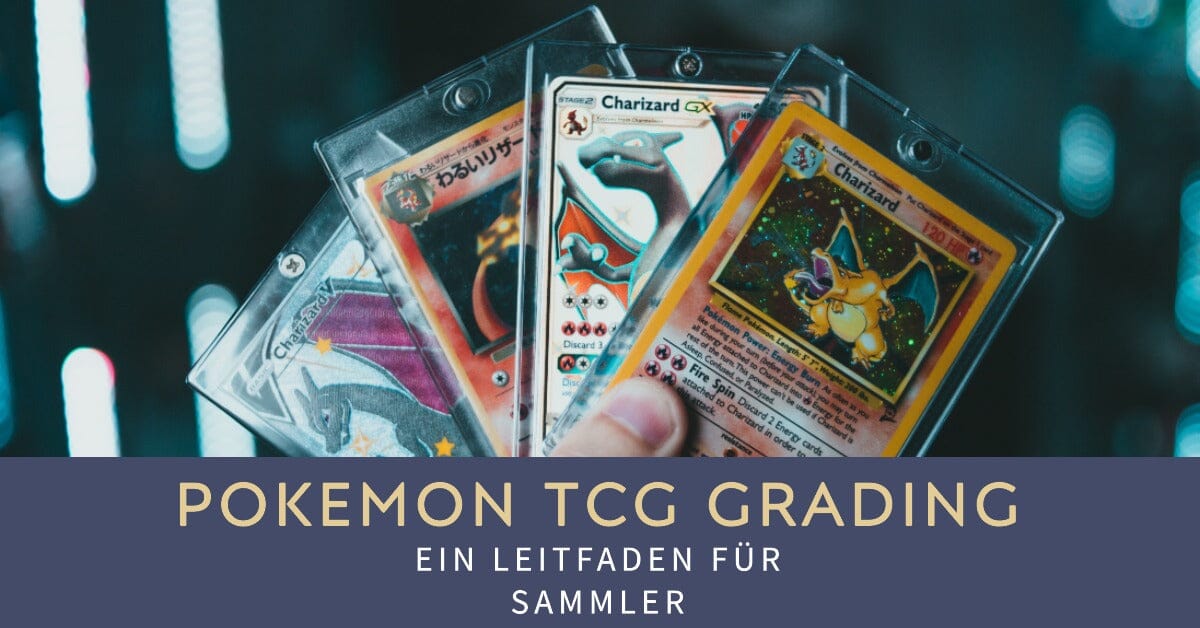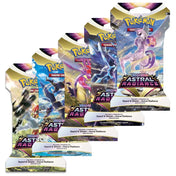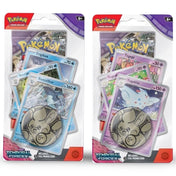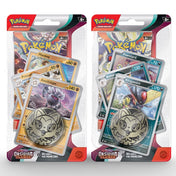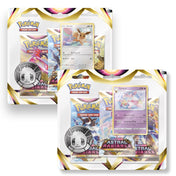Pokemon TCG card grading is an important consideration for collectors as it determines a card's condition and value. In this guide, we'll cover the basics of the grading process and share some tips and tricks for collectors who want to get their cards graded.
What is grading?
Grading is the process by which an expert assesses the condition of a Pokemon card and assigns it a condition grade. This grade indicates how well preserved the card is and can have a significant impact on its value. Cards that are in better condition usually have a higher value than those that are worn or damaged.
Why is grading important?
Grading is important for several reasons:
Valuation:
A higher condition level usually means a higher value for the card. Collectors and investors are willing to pay more for cards in good condition, and grading helps to objectively determine a card's actual condition.
Authentication:
Grading experts also check the authenticity of the card to ensure it is not a reprint or a fake. This can be especially important when dealing with rare and valuable cards.
Protection:
During the grading process, the card is usually sealed in a special protective case that protects it from further damage. This helps preserve the condition and value of the card.
grading company
There are several companies that grade Pokemon TCG cards. The most well-known are:
PSA (Professional Sports Authenticator):
PSA is one of the best known and most respected grading companies in the world. They offer a comprehensive grading of cards and have strict standards that they apply when grading.
BGS (Beckett Grading Services):
BGS is another well-known grading company that specializes in trading card grading. They are known for their detailed reviews and high standards.
CGC (Certified Guarantee Company):
CGC is a relatively new grading company that has quickly made a name for itself in the trading card space. They provide a quick and reliable way of valuing cards and have become increasingly popular with collectors and investors.
In Germany there are also some grading companies that specialize in Pokemon TCG cards, for example:
GSG (Gold Standard Grading):
GSG is an emerging grading company based in Germany specializing in grading trading cards including Pokemon TCG cards. GSG is known for its high standards and transparent communication with customers.
grading scale
Most grading companies use a scale of 1 to 10 to rate a card's condition, with 1 being the lowest and 10 being the highest rating. A card that gets a 10 is considered "gem mint" or "pristine" and is virtually flawless. Here are some examples of the different degrees of condition:
10 (Gem Mint): The card is in perfect condition with no visible flaws or damage.
9 (Mint): The card has minor imperfections that are only visible on close inspection.
8 (Near Mint): The card has slight imperfections such as small scratches or slight wear on the corners.
7 (Excellent): The card shows moderate imperfections such as light scratches, corner wear or slight discoloration.
6 (Good): The card has major imperfections such as scratches, worn corners, or creases.
Tips for submitting cards for grading
If you want to submit your Pokemon TCG cards for grading, there are a few things to keep in mind:
Map choice:
It is important to choose the right cards for grading. Basically, you should choose cards that are in good condition and have or could have a high value. Rare cards, promo cards , and valuable holocards are good candidates for grading.
Packaging:
Be sure to pack your cards carefully to avoid damage during transit. Use card sleeves and toploaders to protect cards, and make sure to mail them in a sturdy box or envelope.
Research:
Find out about the different grading companies and their prices, turnaround times, and grading standards. Choose the company that best suits your needs and budget.
Patience:
Grading maps can take some time, especially with the more well-known grading companies. Be patient and wait for your cards to be returned - it's worth it!
Conclusion
Overall, the grading of Pokemon TCG cards is an important aspect for collectors and investors to objectively determine the value of their cards and protect them from further damage. By following the tips above and learning about the different grading companies and their grading criteria, you can get the most out of your collection and potentially make significant returns. Whether you're just starting out collecting Pokemon TCG cards or have been at it for years, grading can be a valuable tool in taking your collection to the next level and ensuring its long-term value.
FAQ - Frequently Asked Questions
1. Is it worth getting all my Pokemon cards rated?
There's no need to rate every single card in your collection . It's best to only submit valuable, rare, or potentially rare cards for grading. Grading costs money, so you should be careful to only select cards that are worth officially confirming their condition.
2. How much does Pokemon card grading cost?
Pokemon card grading costs vary depending on the grading company, the number of cards you wish to submit, and the desired turnaround time. Prices can range from around 10 euros per card to 50 euros or more for express processing. It is advisable to compare the prices of different grading companies before deciding on one.
3. How long does the grading process take?
Pokemon card grading processing time may vary depending on the grading company and the number of cards submitted. In general, the process can take anywhere from a few weeks to several months. However, some grading companies also offer expedited processing for an additional fee, where the cards are graded in less time.
4. Can grading increase the value of my Pokemon cards?
Yes, grading can add value to your Pokemon cards, especially if they are in great condition and have a high rating. Collectors and investors value maps with high grading ratings as they confirm the condition and authenticity of the map. Cards with high ratings can therefore fetch higher prices in the market.
5. What happens if my card is damaged? Should I still rate them?
If your card is already damaged, it will likely get a lower rating. In this case, you should consider whether it's worth getting the card graded, as the cost of grading may not be offset by the card's value increase. However, in some cases it may be useful to also have damaged rare or valuable cards rated to confirm their authenticity.
